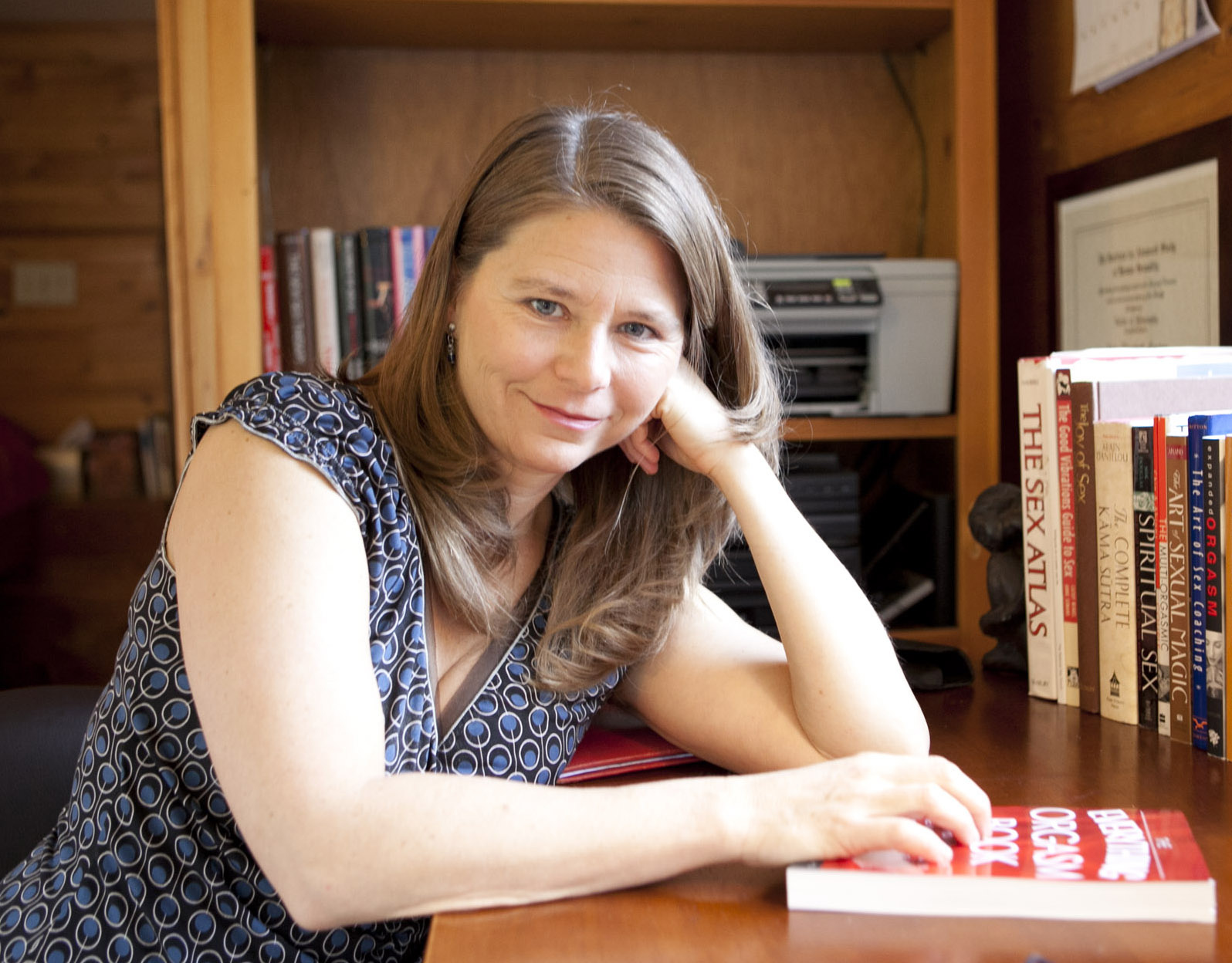Amy Cooper, PhD, earned her doctorate in Human Sexuality from the Institute for Advanced Study of Human Sexuality. IASHS, located in San Francisco is an internationally recognized leader in graduate level education in research sexology, clinical sexology, and sex education.
Dr. Cooper has also trained in the Hakomi method of body-centered counseling at the Hakomi Institute of California. Hakomi is described in more detail in the FAQs page on this website. The combination of Clinical Sexology and the Hakomi method enable Dr. Cooper to effectively and compassionately address a range of sexuality and relationship issues.
Continued involvement in advancing the field of clinical sexology is also important to Dr. Cooper. She is an active member of the American College of Sexologists and the Society for the Scientific Study of Sexuality.
My Promise to You "There is no single 'right' way to be sexual or to have a fulfilling sex life. I promise to always treat you with respect and honor your confidentiality. I promise to accept you and not judge your lifestyle choices. I promise to work with you to achieve sexual satisfaction, while acknowledging that you are the true authority of your own sexuality." |
 |
Here is an Article About Amy in
"The Good Times" a Santa Cruz Weekly:
Let’s Talk About Sex
TUESDAY, 27 NOVEMBER 2012
by APRIL M. SHORT, post publication editing by Tim Hartnett
Starting in high school, Amy Cooper, who now has a PhD in clinical sexology, has fostered open conversations about sex. She often impersonated Dr. Ruth Westheimer, the famous media sex therapist, so that her girlfriends could “call in” to talk about issues they faced regarding sexual arousal, orgasm, eroticism—all the giggly topics people are normally too timid to discuss.
“I loved hearing about people’s sex lives. Talking about sex is natural thing for me,” she says, ”even though it is such a taboo thing for many people.” Cooper was raised Mormon but left the church at 18 years old. “I’ve had a life full of sexual liberation,” she says.
Cooper’s partner, a psychotherapist, encouraged her to become a sex counselor because he noticed a lack of therapists and psychologists who were as comfortable talking about sex as she is. She says her job involves giving hands-on homework assignments and facilitating better communication about sex.
While Cooper says all of her clients are experiencing some kind of sexual dissatisfaction, the women she sees want to increase the quality, and the men want to increase the quantity. She says approximately 95% of the women she seesseek to improve their enjoyment of sex, and about 75% of those women have issues with arousal. Roughly another 50% have low desire levels, which she says is not uncommon when sex is not enjoyable or is too routine.
She says that 85% of men in her practice are dissatisfied with the frequency of sex, and about 30% of her male clients have erectile difficulty. “The difference is that while men may have arousal issues, they usually do not have desire issues— they still want sex,” Cooper writes in an email. “Whereas, women may have both desire and arousal issues— and sometimes they don't want sex.”
The most common frustration her clients encounter is in their sexual routines.
“The mind wants new experiences; we crave novelty,” she says. “If we keep going back to the same experience, we actually feel them less, because our nervous systems numb out with repetition. So by introducing new behaviors, fantasies, and ideas, we can show up and be more present with the sex we’re having.”
To help foster sexual openness here with Santa Cruz’s women, Cooper will host a women-only forum entitled “The Sex We Want: An Open Space Forum for Women,” on Saturday, Dec.1 , 2012.
“It’s really rewarding to go into a public setting like this and get people taking, laughing and enjoying the freedom of talking about sex in a group,” she says.
The event is open to women of all sexual orientations, with LGBT ladies especially encouraged to attend. The open space formatis designed to stimulate dialogue between participants about their challenges, experiences, and the ways in which they derive pleasure. In Open Space forums the participants can inititate their own discussions on the topics they choose. There is no keynote address or scripted exercises.
Cooper notes that the forum will be a safe space with the level of participation completely up to each individual. Nobody will be required to speak or share any personal information.The exclusion of men is intended to help women who do share feel ascomfortable as possible. “Ususally, women feel more open and comfortable in a room with just women. The dialogue can be a lot more juicy and interesting,” Cooper says.
Cooper says this forum focuses in on the feminine side of sexuality because she finds women are less familiar with their own sexual preferences than men. She hopes the discussion will help women gain insight on what does and doesn’t work for them.
“I think women often want a lot more sex than they’re getting,” she says. “We have a lot of satisfaction we could be getting sexually, but we haven’t yet because we may not be free enough or liberated enough to discover and then communicate what it is that’s really meaningful and rich for us in sex.”
The most important part of a sex counselor'sjob, she says, is to model talking about sexual pleasure with sincerity—that's something so necessary in today’s society. "Hopefully we’ll get to a place where we won’t need sex counselors like me because everyone’s comfortable and there are no more taboos about just talking honestly about what’s going on,” she says.